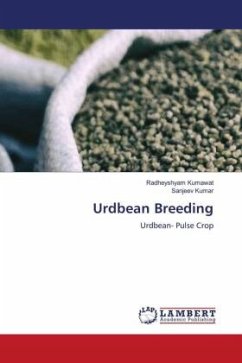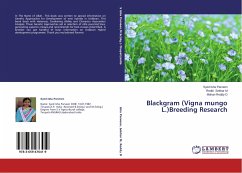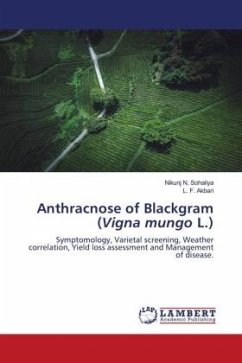Black gram, its scientific name is Vigna mungo L. belonging to family leguminosae. It is a self pollinated crop with a chromosome number (2n= 2x= 22) grown in tropical and sub-tropical regions of the world. It is believed to be a native of India (Zukovskiji, 1962). India is world's largest producer of pulses with its total pulse production contributing a quarter of world's total production. While one-third of world's total acreage under pulses is in India, Indian population consumes 30% of world's total pulses. Black gram (urad), one of the pulses, is mostly produced in Asian countries as their tropical climate and soil type suits its cultivation.Its seeds are highly nutritious with carbohydrates (60%), fat (1.5%), minerals, amino acids and vitamins. Black gram is a rich protein food. It contains about 25-26 percent protein, which is almost three times that of cereals.This crop is itself a mini-fertilizer factory, as it has unique characteristics of maintaining and restoring soilfertility through fixing atmospheric nitrogen insymbiotic association with Rhizobium bacteria present in the root nodules.
Bitte wählen Sie Ihr Anliegen aus.
Rechnungen
Retourenschein anfordern
Bestellstatus
Storno








